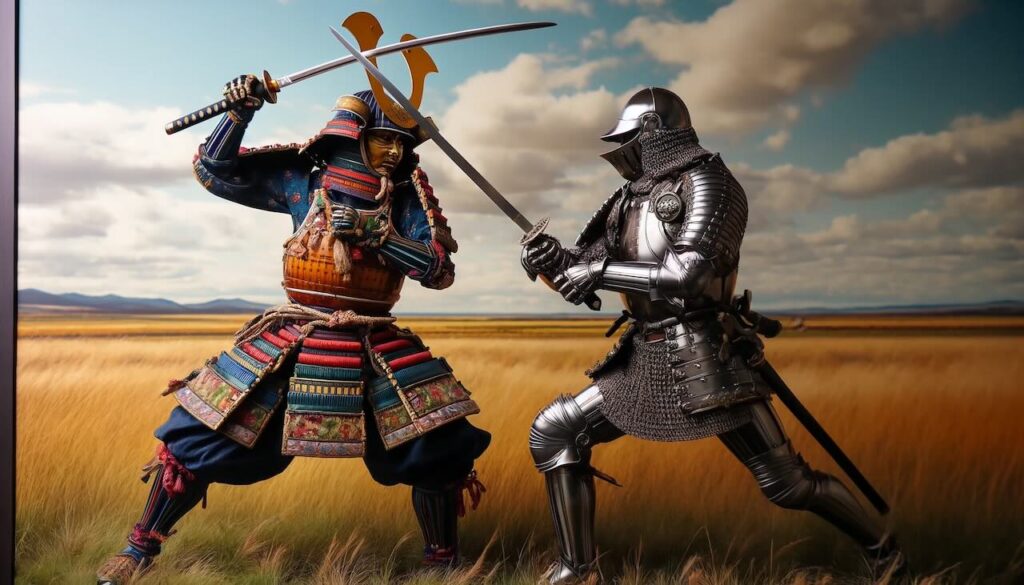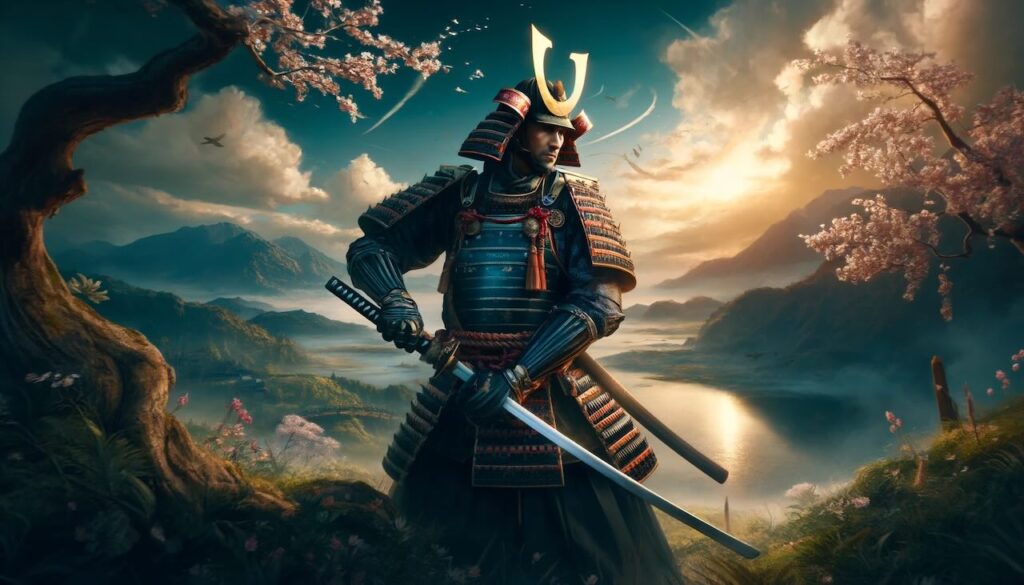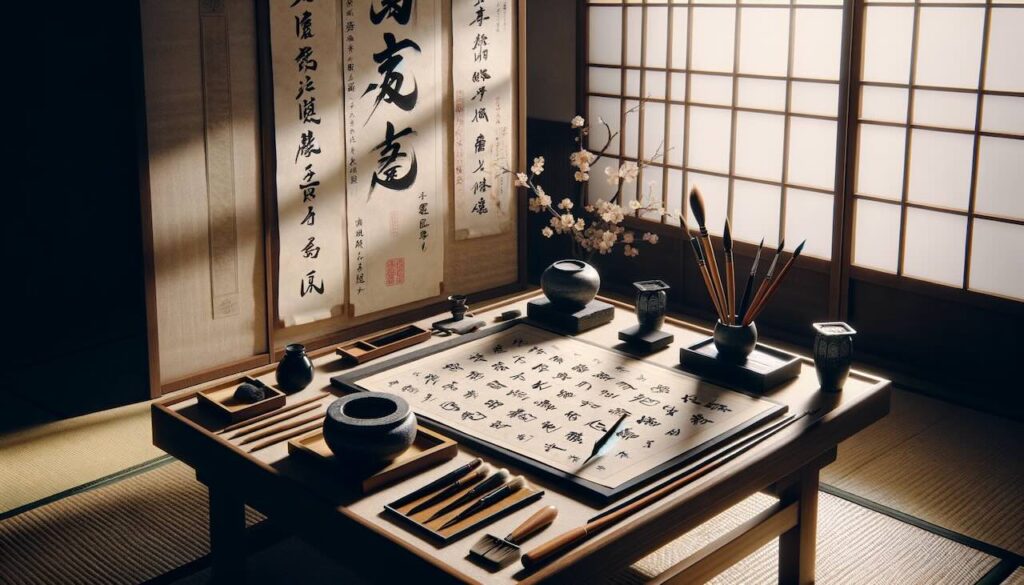From the samurai of feudal Japan to the knights of medieval Europe, warrior classes have long followed strict moral and ethical codes. Two of the most influential are Bushido and Chivalry—distinct in origin, but surprisingly aligned in values. Though born in different parts of the world, these codes shaped not only the conduct of warriors, but the culture, religion, and ideals of their societies.
In this article, we’ll explore the similarities and differences between Bushido and Chivalry, and how their principles continue to inspire modern life.
Origins and Historical Context
🗡️ Bushido – “The Way of the Warrior” (Japan)
- Developed in the late 12th to early 13th centuries among Japan’s samurai class
- Refined over time, particularly during the Muromachi and Edo periods (14th–17th centuries)
- Influenced by Buddhism, Shinto, and Confucian ethics
⚔️ Chivalry – The Knightly Code (Europe)
- Emerged in 11th-century medieval Europe alongside the rise of the feudal system
- Idealized through poetry, courtly literature, and Christian teachings in the 12th and 13th centuries
- Strongly shaped by Christian morality and the concept of divine justice
Shared Values: Where Bushido and Chivalry Align
Despite cultural differences, both Bushido and Chivalry emphasized a set of universal warrior virtues:
| Virtue | Bushido & Chivalry |
|---|---|
| Loyalty | Absolute loyalty to one’s lord or cause |
| Courage | Bravery in the face of danger |
| Honor | Protection of personal and social dignity |
| Proper Etiquette | Polished behavior and respect for others |
| Justice & Morality | Upholding righteousness above all |
| Spiritual Foundations | Bushido: Buddhism & Shinto / Chivalry: Christianity |
These codes weren’t just military guidelines—they were moral compasses that reflected the values of the ruling elite in their respective societies.
Key Differences: Culture-Specific Ethics
While the two codes share many ideals, some differences reveal deeper cultural distinctions.
| Aspect | Bushido (Japan) | Chivalry (Europe) |
|---|---|---|
| Primary relationships | Focus on lord-retainer loyalty | Includes knightly bonds and brotherhood |
| Ritual Suicide | Seppuku seen as a noble end | No parallel concept in Christian ethics |
| View of Women | Less emphasized in the warrior code | Strong emphasis on courtly love and respect |
In Bushido, self-sacrifice—even to the point of death—was considered honorable, whereas Chivalry placed higher value on piety, humility, and devotion, particularly toward women and the Church.
Enduring Influence in the Modern World
Even in a world far removed from feudal battles, the core tenets of Bushido and Chivalry live on.
| Modern Arena | Warrior Code Legacy |
|---|---|
| Sports | Fair play, respect for opponents, personal discipline |
| Business | Loyalty to one’s team, integrity, courage in leadership |
| Everyday Life | Honor, justice, and doing what is right—even when difficult |
Both codes remind us that true strength lies not only in power, but in character. They encourage people to act with integrity, stay loyal to their principles, and treat others with respect—timeless values in any age.
Conclusion: Two Traditions, One Universal Spirit
Bushido and Chivalry emerged from vastly different worlds, yet both served to elevate warriors into models of moral excellence. Their emphasis on loyalty, courage, and honor reflects a shared human desire to live with purpose and die with dignity.
Today, whether in the dojo or the boardroom, the spirit of these ancient warrior codes continues to guide those who seek to live with discipline, justice, and respect.


